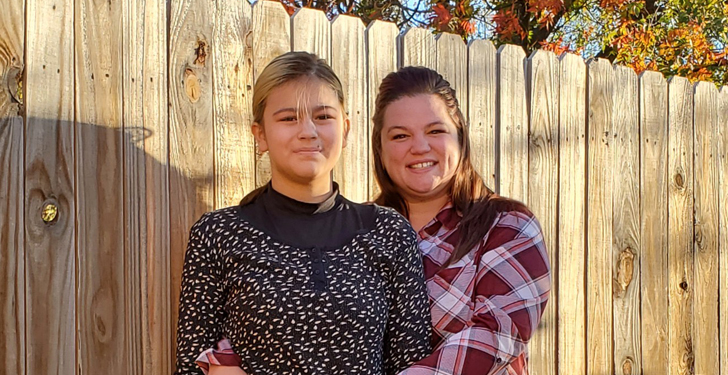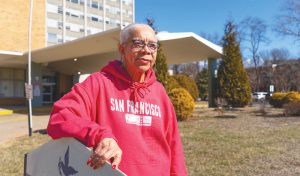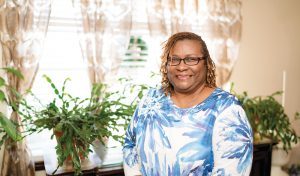by Kendra Russell
Norman, Okla.
As a child, I struggled deeply with where I belonged. My unstable home environment left me with a largely unstructured childhood. I ended up in the streets, where I experienced things no child should.
At 13, I decided that the best way to gain independence was to sell drugs. And so began my life of crime. All I cared about was providing for myself and, eventually, my children. It didn’t matter who was sacrificed along the way. Over time, I felt my heart become calloused beyond repair.
In 2011, at 25, I was convicted on drug trafficking charges, which brought me a 45-year prison sentence at a female correctional facility.
My life began to change in 2014, when I started assisting a life coach in prison with a self-empowerment program and began to see new possibilities for my life. It was around this time when I saw a Nam-myoho-renge-kyo card on a desk of one of the prison administrators and became curious.
Soon after, I found a Buddhist group meeting on the prison compound. I attended one of the meetings and was encouraged there to chant Nam-myoho-renge-kyo for three things. The only one I remember is my prayer for my daughter Melia, who had been diagnosed with autism and ADHD, and was living with her grandmother. Remarkably, she soon improved so dramatically that she was no longer held back by these challenges. This experience taught me the power of chanting. I got connected to an SGI member, who helped me develop a consistent practice and subscribe to the SGI-USA publications.
I had another defining moment in 2017, when I was offered the chance to sell drugs again while in prison. My family needed help, my court case had a lot at stake, and I was getting crushed with legal fees. As I chanted about this, I realized that if I started destroying lives again, I might as well not get out. It took tremendous courage and self-control, but I declined the offer.
That’s when I realized that I was no longer broken. I felt whole and confident. I focused on working and volunteering, and my prison sentence was dramatically reduced as a result of good behavior. In January 2019, I was released after less than eight years. By then, I had secured two job offers. I couldn’t believe it!
Following my release, I faced a new set of obstacles. I was sent to a transitional house where I was unable to openly practice Buddhism. This time, I felt like I was in the prison of my mind. But I continued to chant in the car on my way to work. Due to the house rules, I wasn’t allowed to go anywhere except work and a church required for all residents, so SGI members would visit me at my workplace briefly and even at the church to encourage me. I have so much appreciation for the dedicated compassion of all the SGI members.
At the beginning of 2020, I moved into my own apartment, where I can freely practice Buddhism and attend SGI meetings! In addition, my daughter Melia, who is now 12, has since moved in with me, and we are deepening our bond as mother and daughter. She is so smart and funny, and I just love every moment with her. I also have a job that I truly enjoy as a retention manager at one of the fastest growing brokerage firms in the country.
Through practicing Buddhism, my perception of reality and truth has changed. I understand that I am responsible for the causes I make, and I now feel a sense of purpose as a Bodhisattva of the Earth to bring peace and happiness to others. I’m now proudly supporting my district in any way I can! My determination for myself and the SGI is to always remember that the heart is most important. Based on faith, practice and study of Ikeda Sensei’s encouragement, I am determined to be a source of hope for others. Changing my life through chanting is the best decision I ever made.
from Nichiren Daishonin (“The Eight Winds,” The Writings of Nichiren Daishonin, vol. 1, p. 794)
Worthy persons deserve to be called so because they are not carried away by the eight winds: prosperity, decline, disgrace, honor, praise, censure, suffering, and pleasure. They are neither elated by prosperity nor grieved by decline. The heavenly gods will surely protect one who is unbending before the eight winds.
You are reading {{ meterCount }} of {{ meterMax }} free premium articles





